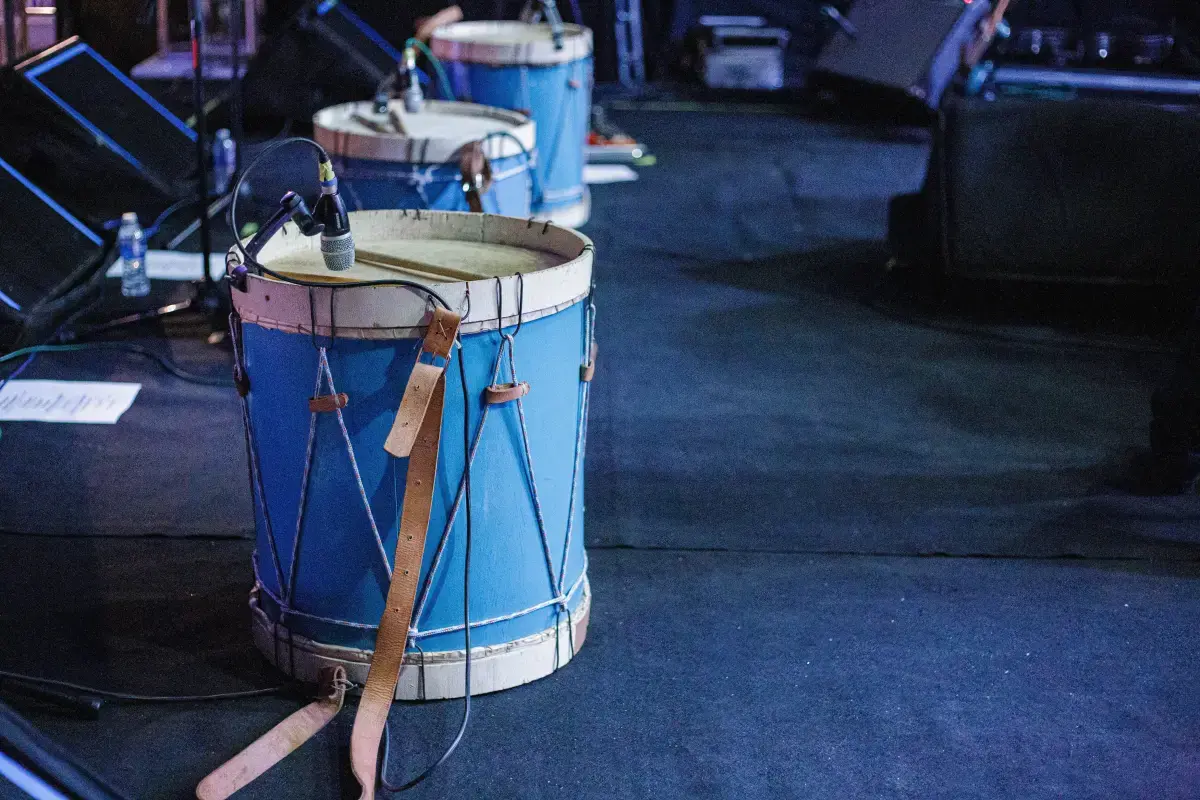
Music Director Job Description
What is a Music Director Professional?
A music director is a person who leads the musical activities of an organization, such as a church, orchestra, or school. A music director may also be responsible for selecting and training musicians, and for planning and conducting performances. Some music directors are also performers themselves, either singing or playing an instrument. In large organizations, the music director often works with other conductors and administrators to plan and coordinate musical activity. For example, the music director of an opera company might work with the stage director to select operas that will be performed in upcoming seasons, and then work with individual conductors to prepare those operas for performance.

What does a Music Director Expert do?
Music directors typically have a broad knowledge of music styles and genres, and they use this knowledge to make choices about repertoire, performance venues, and soloists. They must also be skilled at working with people; they must be able to motivate and inspire musicians, and to manage rehearsals effectively. The job of music director is both demanding and rewarding. It requires dedication, hard work, and a passion for music. Those who are successful in this field enjoy a great deal of satisfaction from bringing beautiful music to audiences around the world.

What are the Skills of a Music Director?
A music director, also sometimes called a conductor, is responsible for leading a musical ensemble and directing them in performances. This can include orchestras, choirs, bands, and other groups. Music directors typically have extensive experience with music theory and performance practice, and they may hold degrees in music or related field. In addition to their musical expertise, music directors must also be able to effectively communicate with and manage people. The job of a music director requires a great deal of skill and experience. First and foremost, they must be excellent musicians who are proficient in both playing an instrument (or instruments) and reading sheet music. They should also have a strong understanding of musical theory so that they can effectively lead rehearsals and teach new concepts to their ensemble.

What makes an Expert Music Director?
Additionally, it is important for music directors to have good people skills since they will be working closely with other musicians as well as managing logistics for performances. Finally, being organized and detail-oriented is crucial for success in this role since there is often a lot of paperwork involved in planning concerts and events. Those who wish to become music directors should consider studying music at the collegiate level or beyond. However, it is also possible to gain the necessary skills through private lessons, workshops, and self-study. Many communities offer programs for young conductors which can be beneficial experiences as well. It is important to get as much experience leading ensembles as possible before auditioning for paid positions; volunteering or interning with local organizations is often a good way to start building one’s resume.

What level of Experience & Qualifications are required to be a Music Director?
Industry Experience: Extensive experience in the music industry, including a wide range of roles such as artist manager, producer, engineer, composer and performer. • Training: Advanced training in music production techniques, studio recording skills and sound engineering principles. Knowledge of digital audio workstations (DAWs), mixing consoles and MIDI controllers is essential. • Qualifications: A degree or higher-level qualification in a relevant subject such as Music Technology or Audio Production would be beneficial but not essential. Alternatively, if you have extensive professional experience working with artists and/or producing records then this may also be considered valid experience for the role. • Education: An understanding of musical theory; knowledge of different genres and styles; familiarity with popular software programs used for music production (e.g., Logic Pro X); excellent communication skills to communicate effectively with clients; strong leadership qualities to successfully manage teams during recording sessions; an ability to multitask and prioritize tasks efficiently are all important assets for any potential candidate looking to become an expert music director

What is the Salary of a Music Director?
The salary expectations of a music director can vary greatly depending on experience, location, and the type of organization they are working for. For junior level positions, salaries typically range from $30,000 to $50,000 per year. These jobs may involve working as part of a team or under an experienced music director in order to gain more experience and hone their skills. They may also be responsible for providing musical direction at small events such as concerts or festivals. At the mid-level position, salaries start around $60,000 and can go up to $80,000 per year depending on the size of the organization and its budget for musical programming. At this stage in their career development music directors will likely have some professional experience already and could be given responsibility over a larger number of musicians or performances including creating arrangements or conducting rehearsals with multiple ensembles. Finally senior level music directors command significantly higher salaries starting from around $90,000 but often reaching well into six figures depending on experience and reputation within the industry as well as any additional specialties that might set them apart from other candidates (such as knowledge of certain genres). A senior music director would generally oversee all aspects of production including booking artists/bands/ensembles; arranging programs; leading rehearsals; coordinating sound engineering staff; producing recordings; managing budgets etc…

What are the Working Conditions for a Music Director?
The working conditions of a music director vary depending on the type of employer. Generally, they spend most of their time in rehearsal and performance venues such as concert halls, recording studios, theaters, churches and schools. They may also travel to various locations for performances or recordings. Music directors usually work long hours and weekends during peak performance periods. They must be able to read and follow written musical scores while conducting rehearsals with musicians or singers. In addition to directing rehearsals and performances, music directors often have administrative duties such as budgeting for projects, scheduling personnel and creating promotional materials. Depending on the employer’s needs, a music director may also act as an advisor on artistic decisions concerning programming selections or instrumentation choices.

What are the roles and responsibilities of a Music Director?
Audition and select musicians for the ensemble.
) Rehearse regularly with the ensemble.
) Choose repertoire for performances.
) Program musical events.
) Negotiate contracts with guest artists.
) Serve as liaison between the conductor and the musicians.
) Keep track of musician absences and tardiness.
) Maintain equipment and instruments.
) Manage the music library.
) Attend concerts and productions to take note of stage action and blocking that might affect the placement of musicians onstage.
)Coordinate repairs and maintenance of instruments with instrument repair technicians.
)Engrave music parts from scores using computer software or pencil and paper, according to rehearsal and performance needs..
)Select accompaniment materials, such as rhythm section charts or full scores, for rehearsals and performances..
Order printed music, small percussion items, reeds, strings, etc., as needed..
hire local string or wind players when a score calls for more musicians than are in the regular ensemble..
part-time employees who help with office duties such as copying music, taking inventory, booking travel arrangements..
Compile statistical reports on attendance at rehearsals and concerts..
Maintain financial records related to repertoire costs, musician fees, event expenses
submit grant proposals to funding organizations
distribute marketing materials

Where can I find Music Director jobs?
- Create a profile on gigexchange and promote your Music Director skills to advertise you are Open to New Work Opportunities
- Ensure your Resume (or CV), or online work profile is up to date and represents your skills and experience. Ensure your reputation reflects your ability & attitude.
- Apply for Music Director Jobs advertised on gigexchange.
- Practise Music Director interview techniques to ensure you represent your personality and ability succinctly and confidently.
- Accept the job offer if the salary meets your expectations and the employer mission and purpose reflects your core values.
Jobs
What are the best job boards for Musical Conductor jobs?

How can I hire Music Director staff online for my business?
The best job board for recruiting Music Director experts is gigexchange.com. Advertise full-time, part-time or contract jobs to find, hire & recruit trusted, experienced and talented Music Director candidates near you.

Are Music Director roles in demand in 2026?
Music Director experts are still in high demand in 2026. If you are an experienced Music Director or looking to train and become one. The job market is looking strong for Music Director jobs near me.